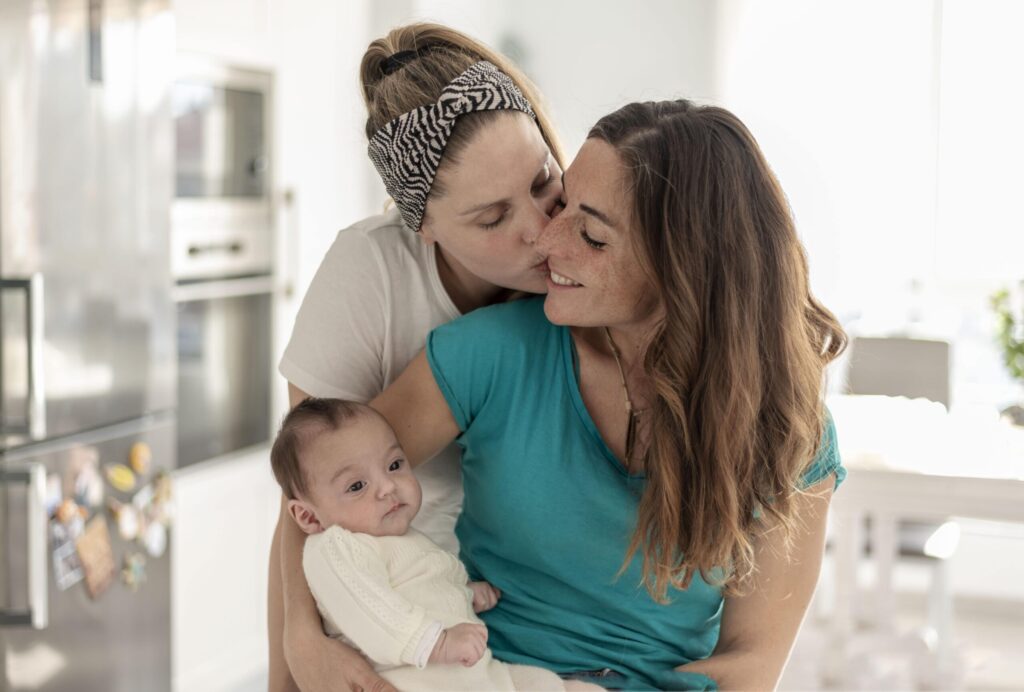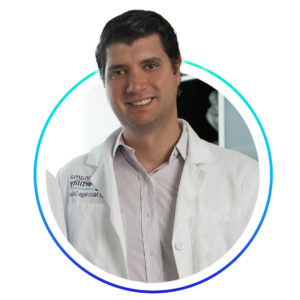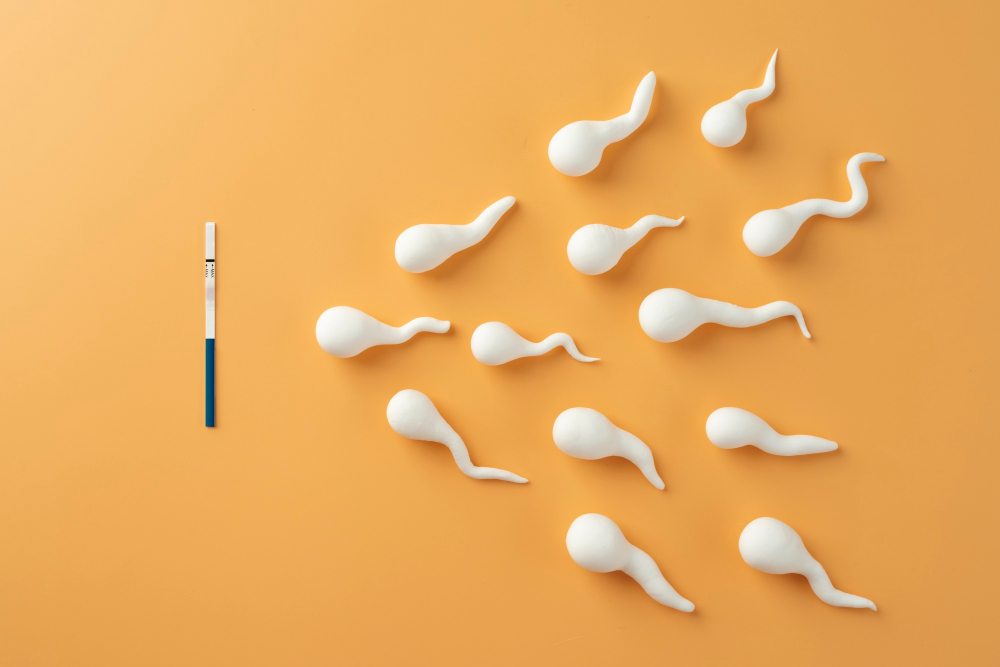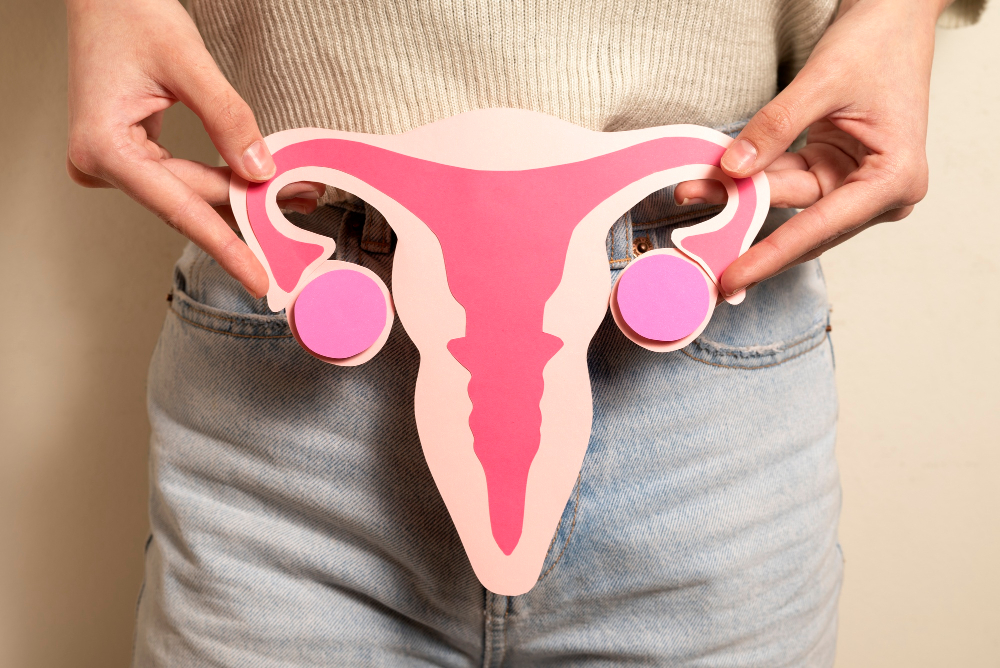Reciprocal IVF Success Rates
IVF success IN GEORGIA
Reciprocal IVF Success Rates: What LGBTQ+ Couples Need to Know

For same-sex female couples, reciprocal IVF offers a unique opportunity for both partners to participate in the pregnancy journey. One partner provides the eggs, while the other carries the baby, creating a shared experience of parenthood.
However, one of the most common questions LGBTQ+ couples ask is: What are the success rates for reciprocal IVF?
Success rates for reciprocal IVF vary depending on several factors, including age, embryo quality, and the clinic’s expertise. This guide will help you understand:
✅ Average success rates for reciprocal IVF
✅ Factors that impact success rates
✅ How to increase your chances of pregnancy
✅ Why Panamá Fertility is a top choice for LGBTQ+ couples
What is the Success Rate for Reciprocal IVF?
Reciprocal IVF has success rates comparable to traditional IVF, as the process is nearly identical. However, results depend largely on:
🔹 The age of the egg provider
🔹 Embryo quality and genetic testing
🔹 The health of the gestational partner’s uterus
Here’s a breakdown of reciprocal IVF success rates based on age:
Age of Egg Provider | Pregnancy Rate per Cycle | Live Birth Rate per Cycle |
Under 35 | 50-60% | 45-50% |
35-37 | 40-50% | 35-40% |
38-40 | 30-40% | 25-35% |
Over 40 | 20-30% | 15-25% |
💡 Fact: Using younger eggs significantly increases success rates.

Factors That Impact Reciprocal IVF Success Rates
- While reciprocal IVF has high success rates, multiple factors can influence the chances of pregnancy:
✅ Age of the Egg Provider
- Women under 35 have the highest success rates because younger eggs are healthier.
- If using eggs from a partner over 40, consider genetic testing (PGT-A) to improve embryo selection.
✅ Embryo Quality & Genetic Testing
- Preimplantation Genetic Testing (PGT) ensures only the healthiest embryos are transferred.
- Clinics using advanced embryo selection technology see higher live birth rates.
✅ Uterine Health of the Gestational Partner
- A thick, healthy uterine lining (8mm or more) increases implantation chances.
- Doctors may recommend hormonal therapy to optimize the uterine environment.
✅ Fertility Clinic Expertise
- High-quality IVF labs and experienced doctors improve pregnancy success rates.
- Clinics offering ICSI (Intracytoplasmic Sperm Injection) and embryo freezing increase chances of success.
How Many Cycles Does It Take to Get Pregnant?
While some couples conceive in one IVF cycle, others may require two or more cycles. Here’s what to expect:
Number of IVF Cycles | Cumulative Pregnancy Success Rate |
1 Cycle | 50-60% |
2 Cycles | 75-80% |
3 Cycles | 85-90% |
💡 Fact: Most LGBTQ+ couples achieve pregnancy within 2-3 IVF cycles.
How to Improve Your Reciprocal IVF Success Rates
1️⃣ Choose the Best Fertility Clinic
- Not all fertility clinics specialize in LGBTQ+ family-building.
- Panamá Fertility has a high success rate for reciprocal IVF and offers inclusive care.
2️⃣ Use Preimplantation Genetic Testing (PGT-A)
- Helps select the healthiest embryos for transfer.
- Reduces miscarriage rates and improves live birth outcomes.
3️⃣ Optimize the Gestational Partner’s Uterine Health
- Hormonal treatments like estrogen and progesterone improve uterine receptivity.
- Uterine lining should be at least 8mm thick for the best implantation chances.
4️⃣ Consider Freezing Multiple Embryos for Future Cycles
- Many couples freeze extra embryos for a second child or additional attempts.
Why LGBTQ+ Couples Choose Panamá Fertility for Reciprocal IVF
Many LGBTQ+ couples in Georgia, Florida, and other U.S. states travel to Panamá Fertility for:
⭐ Higher IVF Success Rates for LGBTQ+ Patients
- Cutting-edge embryology lab and expert fertility specialists.
- Preimplantation genetic testing for optimal embryo selection.
⭐ More Affordable Reciprocal IVF Costs
- Reciprocal IVF at half the price of U.S. clinics.
- Lower-cost sperm donation and genetic testing.
⭐ LGBTQ+ Inclusive & Supportive Clinic
- Specialized fertility treatments for same-sex couples.
- Legal and ethical guidance for LGBTQ+ families.
⭐ No Long Wait Times
- Immediate reciprocal IVF cycle scheduling.
⭐ VIP Concierge Services for International Patients
For patients traveling from Georgia or other U.S. states, Panamá Fertility provides:
✅ Airport pickup & accommodations
✅ English-speaking fertility specialists
✅ Personalized treatment coordination
FAQs About Reciprocal IVF Success Rates
Most clinics recommend transferring one embryo to reduce the risk of twins or triplets.
Yes! Preimplantation Genetic Testing (PGT-A) allows gender selection.
If the first cycle fails, many couples succeed with a second embryo transfer.
Yes! Panamá Fertility is an internationally accredited clinic offering world-class LGBTQ+ fertility care.
Reciprocal IVF costs $15,000 - $30,000 in the U.S. but is $7,000 - $10,000 at Panamá Fertility.
You can schedule a virtual consultation from Georgia and start planning your treatment today.
Conclusion: Take the Next Step in Your Parenthood Journey!
If you’re considering reciprocal IVF, choosing the right fertility clinic is crucial.
✅ Higher success rates for LGBTQ+ couples
✅ More affordable reciprocal IVF costs
✅ Inclusive fertility specialists for same-sex couples
✅ State-of-the-art reproductive technology
ivf success IN GEORGIA
Take Control of Your Fertility Today

🌟 Your journey to parenthood starts here! Contact Panamá Fertility today to schedule your consultation and begin your reciprocal IVF journey.
👉 Book Your Reciprocal IVF Consultation Now!




